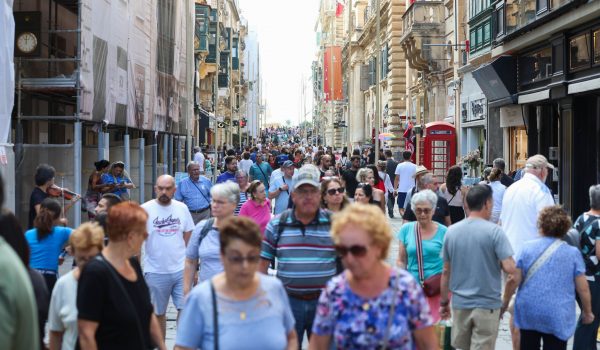
Malta’s Covid-19 reproduction number has now risen up to 1.5, statistician Vincent Marmara told The Malta Independent on Sunday in his weekly vlog.
The reproduction number of the virus is one of the key figures which countries across the world have been trying to reduce ever since the Covid-19 pandemic began. The aim for countries has been to reduce the ratio to a level of 1 – which would mean that one person would transmit the virus to one other person.
Malta’s reproduction number had not exceeded 1 since last May, but a spike in cases in the last three weeks has seen it exceed the 1 barrier.
The last week up until Friday saw the highest weekly number of cases found since the beginning of the pandemic, Marmara’s analysis showed, with 152 cases being found. The highest number of cases found before that was in the fifth week of the pandemic last April, when 148 cases were found.
However, Marmara noted that from a percentage stand-point, the percentage of the number of cases found against the number of tests carried out is half that same percentage in the fifth week of the pandemic.
Indeed, in the past week 1.3% of the swab tests carried out came back positive – that figure stood at 2.6% during the fifth week of the pandemic and actually was at its highest at 4.2% in the second week from when the first case was found.
Regardless, the country’s Covid-19 reproduction number has now exceeded 1, much like it did on two other occasions in the past five months.
The increase in cases – on Saturday the number of active cases had increased to 351, a figure which includes over 100 migrants who have no bearing on local transmission and hence are not included in calculations on the r-factor – is parallel to increases in other European countries, Marmara noted.
In fact, there has been an increased number of cases being found in Spain, Belgium, Germany and, albeit marginally, Italy. The number of cases in the United Kingdom meanwhile has levelled off and remained stable.
Increases meanwhile continued in Australia which, because it is currently in the midst of its winter season, could serve as a good indicator for Europe and the rest of the world over whether the virus is seasonal or not.
Concluding, Marmara said that it is very important that people responsibly follow the guidelines issued by the authorities – those being ones which pertain to social distancing and the wearing of face masks – in order to reduce transmission of the virus.
“Like we managed to keep the rate of transmission low in the first part of the pandemic, we can keep that rate of transmission as low as possible now as well”, Marmara concluded.
Source: Malta Independent



